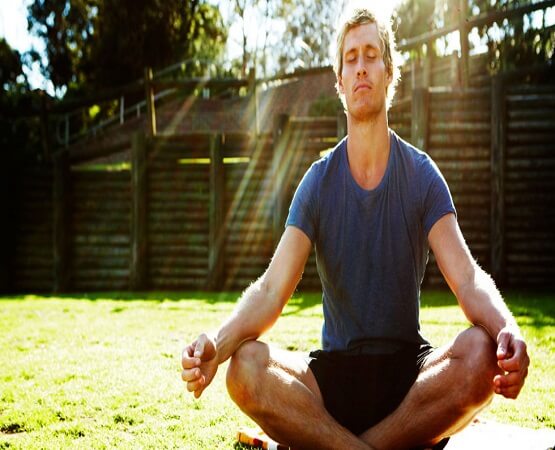
The goals of mindfulness practice
The main goals and benefits of mindfulness practice are: To reduce pain, tension, and stress. Additionally, to increase control over your mind by letting your mind being control you.
Experience reality as it is to live life with your eyes wide open and experiencing the reality of your connection to the universe. Essential goodness, essential.
What is mindfulness?
Mindfulness is intentionally living with awareness in the present moment. Waking up from automatic or routine behaviours to participate and be present in our own lives. It’s doing this without judging or rejecting the idea. Noticing consequences, discerning healthfulness, and harmfulness, the letting go of evaluating, avoiding, suppressing, or blocking the present moment. Without attachment to the moment attending to the experience of each new moment, rather than a boring president by clinging to the past or grabbing for the future.
What are mindfulness skills?
will mindfulness skills are basically specific behaviours to practice back, when put together, make up mindfulness and what is mindfulness practice mindfulness and mind full nest practice skills can be practised at any time, anywhere, while doing anything. It’s intentionally paying attention to the moment, without judging it or holding on to it, is all that is needed.
Meditation is practising mindfulness and mindfulness skills while sitting, standing, or lying down quietly for a predetermined period of time. When meditating, we focus the mind for example we focus on body sensations, emotions, thoughts, or even our breath, we open the mind paying particular attention to whatever comes into our awareness. There are many forms of meditation that differ mostly by whether we are opening the mind focusing the mind and if focusing, depending on what is the focus of our attention. Contemplative prayer such as Christian Century prayer, the Rosary, Jewish Sema, Islamic practices in Hinduism in yoga is a spiritual mindfulness practice there’s also mindfulness movement which also has many forms. Examples with this would be yoga, martial arts such as tai chi karate cheat on, and spiritual dancing hiking, horseback riding, walking can also be raise practice mindfulness.
So according to Marcia Lenihan’s core mindfulness skills we have allies kindnesses are illogical mind and her emotional mind together and within that we have what skills this is what you do when practising mindfulness and when we practice mine were observing, describing, and participating. Our house skills when it comes to mindfulness is how we practice mine in means looking at things nonjudgmentally, one mindfully, and effectively.77 if you ever mention the word mindfulness or meditation well you may be greeted by a panic’s expression or negative responses?
There are many great people who would benefit from mindfulness practice for reducing pain, anxiety, depression, or stress. Sometimes, however, an individual may have a history of personal religious belief that acts as a negative filter that blocks them from opening up to practices when this occurs it can be helpful to be prepared with a broader more expansive mindfulness vocabulary capillary one that doesn’t depend on words like mindfulness or meditation.
By expanding your mindfulness vocabulary you may find wonderful creative way to look at your world. Sometimes it can also be a metaphor for fulfilment or can be a metaphor for meditation such as getting in the zone other times it may simply use another more generic term, such as paying attention or observing without judgment. What follows are some ideas for expanding your capillary these ideas let them serve as a springboard for enhancing your own personal mindfulness terminology.
Traditionally mindfulness actually came from ancient Sanskrit word which was actually defined as the ability to observe things with a sense of what he termed bare awareness. In other words it’s just me and noticing things for what they are without adding or subtracting anything. It actually means observing thoughts, sensations in the body and emotions in the impartial and neutral way. Okay thank you potentially all of her experiences could be viewed in this way. This can be thought of as a safe way of distancing from negativity or personal bias. Learning to observe things in a more objective way of course, takes lots of time, practice, and patients.
There is actually a new modern definition for mindfulness which we started out bringing attention to a traditional idea and now moving towards a modern world we can or this mindfulness and being in the moment there are several ways to describe mindfulness and use concepts that fit with our modern language and sensibilities. Paragraph opening to the moment noticing that the truth change and openhearted acceptance of this moment living in the what is as opposed to the what if and read from habit and reactivity some other key components of mindfulness would be except in some letting go focusing on the moment, changing the history Channel, loving awareness. Starting to tune in and paying attention moment to moment bringing your awareness to your breath., Look, and. Non-dual awareness and unplugging maybe finding the centre or even prayerful leaving the busy mind by dropping into the body awareness that doesn’t take side in her hospitality or cultivating a neutral, detached awareness.
 So finding a broader vocabulary for mindfulness you know around the country facilitating mindfulness workshops people notice that the process that occurs is that in small groups to brainstorm other words or phrases that can be used in terms of understanding mindfulness. And even noticed that some of the phrases or words work better than others with different populations such as children they are said to wait he is mindfulness with them are people in pain our owners have substance abuse problems or while many will work with her certain areas will not work well with other populations. Ideas that include this are metaphors for sports and so that might be getting in the zone or getting into the game for how we use technology hitting the pause button and changing the channel. What follows is a useful sort of handout which will talk to the clients about by identifying a word or phrase that works best for them. Everyone has different sensibility and styles that will help find the rate terminology, image, or metaphor. Have fun with this explore your options and adapt them to in a way that works well for you in the right mindfulness vocabulary one that fits one client cannot necessarily fit another but creating a bridge and building a therapeutic relationship between each other can be helpful. This creative process and work well for certain client. For example in the sports film for the love of the game main character Kevin Costner he is a baseball pitcher uses a mindful practice that he calls the mechanisms in order to block out all distractions, get totally focused and ready to pitch. To start exploring and looking at different ways mindfulness keep in mind as well, that visual imagery such as a soothing colour sensual smell may also help to access mindfulness. In addition the words someone uses may also be due as to what mindfulness practices they will find most helpful.
So finding a broader vocabulary for mindfulness you know around the country facilitating mindfulness workshops people notice that the process that occurs is that in small groups to brainstorm other words or phrases that can be used in terms of understanding mindfulness. And even noticed that some of the phrases or words work better than others with different populations such as children they are said to wait he is mindfulness with them are people in pain our owners have substance abuse problems or while many will work with her certain areas will not work well with other populations. Ideas that include this are metaphors for sports and so that might be getting in the zone or getting into the game for how we use technology hitting the pause button and changing the channel. What follows is a useful sort of handout which will talk to the clients about by identifying a word or phrase that works best for them. Everyone has different sensibility and styles that will help find the rate terminology, image, or metaphor. Have fun with this explore your options and adapt them to in a way that works well for you in the right mindfulness vocabulary one that fits one client cannot necessarily fit another but creating a bridge and building a therapeutic relationship between each other can be helpful. This creative process and work well for certain client. For example in the sports film for the love of the game main character Kevin Costner he is a baseball pitcher uses a mindful practice that he calls the mechanisms in order to block out all distractions, get totally focused and ready to pitch. To start exploring and looking at different ways mindfulness keep in mind as well, that visual imagery such as a soothing colour sensual smell may also help to access mindfulness. In addition the words someone uses may also be due as to what mindfulness practices they will find most helpful.
The new exercise it’s called this three minute question one way to re-frame a mindfulness practice is to it in the context of daily self-care this includes asking client what I refer to as many Christian the question can be posed as follows day, you spent several minutes taking care of your physical body and your physical hygiene. This includes things like taking a shower. Sorry, brushing your teeth, even getting dressed in the morning. By what about spending even a few moments working on your mental hygiene? Are you worth three minutes a day taking care of your mind and your brain with the daily mindfulness hygiene practice? This is about the same amount of time you might then brushing your teeth. So ask yourself am I worth three minutes a day? After we have discussed mindfulness practice which we have talked a little bit about this story there is no being perfect when it comes to mindfulness.
- Also ensure that there are benefits of mindfulness practice that you may find helpful and those are as follows one is mindfulness enhances flexibility and adaptability. If an individual has felt stuck and frustrated frustrated by old habits, mindfulness skills promote methods of training the brain to get off of autopilot. In other words mindfulness teaches us how to put on the brakes and slow down before acting on an impulse
- Also mindfulness can cultivate curiosity and greater ease. It helps one explore the journey in the process, as opposed to being overly focused and worried about the outcome.
- Mindfulness changes one’s relationship is self-critical and self blaming thoughts, this promoting greater patience, kindness, kindness, acceptance, and hospitality towards oneself and others mindfulness skills and tools also help to overcome ballistic or all or nothing thinking.
- Mindfulness encourages greater fulfillment in daily life by focusing more on the present moment, and by reducing rumination and negative thoughts, as well as anxiety these are some but not all of the types of things that help and are benefits of mindfulness practice.



